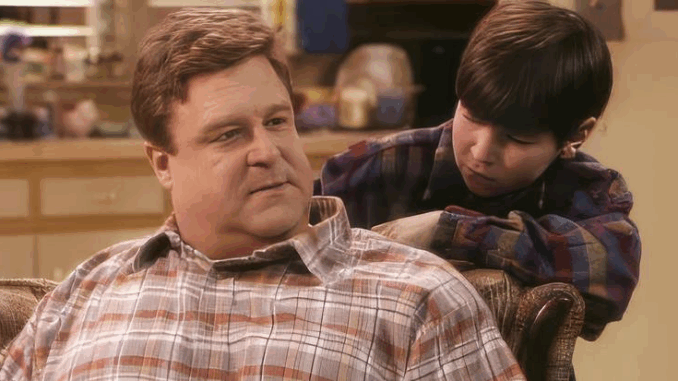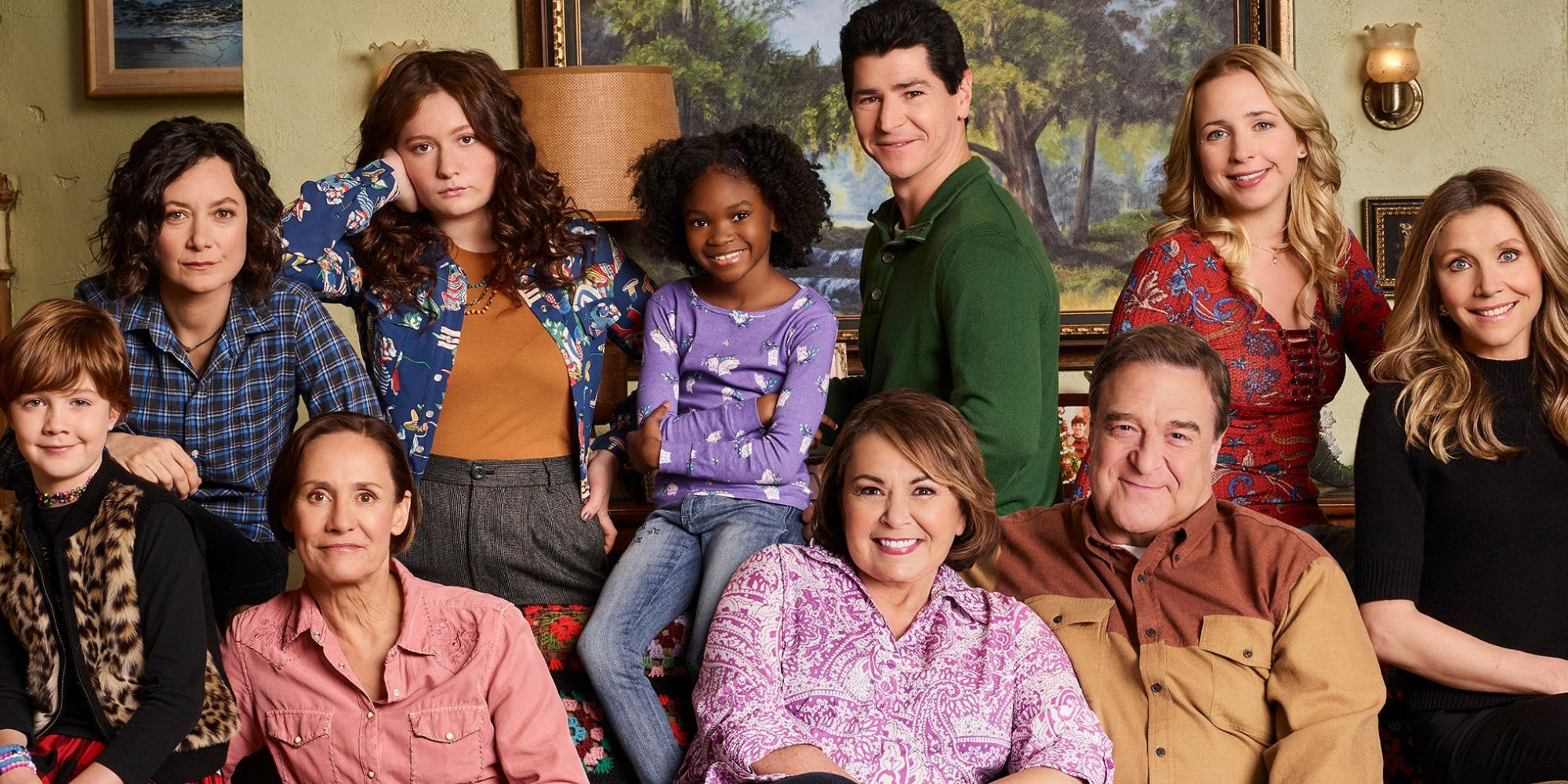
31 Years Ago, ABC Tried To Ban This Controversial ‘Roseanne’ Episode — But It Ended Up Making Television History
In the early ‘90s, American television was still playing it safe. Sitcoms made you laugh but rarely made you think. That all changed when Roseanne, the unapologetically real family comedy, dared to do what no network show had done before.
In 1994, ABC nearly pulled the plug on a Roseanne episode they thought was too controversial for prime time. But the network’s hesitation only fueled the episode’s legend — and when it finally aired, it didn’t just entertain millions; it rewrote the rules of what sitcoms could talk about.
Let’s rewind 31 years to the moment Roseanne made television history.
Setting the Stage: The Boldness of ‘Roseanne’
By 1994, Roseanne wasn’t just a sitcom — it was a cultural force. The show, which debuted in 1988, was known for its fearless storytelling, raw humor, and brutally honest portrayal of working-class life.
Unlike glossy sitcoms that focused on picture-perfect families, Roseanne showed the messy, chaotic, and painfully relatable side of American living. It tackled unemployment, marriage struggles, sexism, and money problems head-on — always with a sharp comedic edge.
So when Roseanne decided to address something even bolder — same-sex attraction and LGBTQ+ acceptance — it shouldn’t have been surprising. But in the early ‘90s, that was still considered taboo.
The Episode That Shook the Network: “Don’t Ask, Don’t Tell”
The episode in question, titled “Don’t Ask, Don’t Tell,” aired in 1994 during the show’s sixth season. The storyline revolved around Roseanne and her friend Nancy (played by Sandra Bernhard) going out to a lesbian bar.
In a moment that would make headlines across the nation, Roseanne Conner — the brash, no-nonsense matriarch — was unexpectedly kissed by another woman, portrayed by Mariel Hemingway.
That kiss was the spark that set off a storm behind the scenes at ABC.
ABC’s Reaction: Fear of Backlash
When ABC executives got wind of the episode, panic spread fast. They feared that showing a same-sex kiss on a prime-time sitcom would trigger massive backlash from conservative audiences and advertisers.
According to reports from that time, ABC initially refused to air the episode. The network’s Standards and Practices department worried it was “too controversial” and would lead to protests or boycotts.
But Roseanne Barr wasn’t having it.
Roseanne Barr’s Defiance: “We’re Airing It Anyway”
True to form, Roseanne Barr fought back. She publicly called out the network for its hypocrisy, pointing out that Roseanne had always portrayed real life — and real life included gay people.
She reportedly told ABC executives that if they didn’t air the episode, she would go public and accuse them of discrimination. The threat worked. ABC reluctantly gave in, though they aired the episode with a parental advisory warning — a first for the show.

The Kiss That Made Television History
When “Don’t Ask, Don’t Tell” finally aired on March 1, 1994, nearly 30 million viewers tuned in.
The kiss between Roseanne and Sharon (Mariel Hemingway’s character) lasted barely a second — but it was enough to make headlines everywhere. Newspapers, talk shows, and conservative watchdog groups exploded with reactions.
Some called it “shocking” or “offensive.” Others praised it as a breakthrough moment for LGBTQ+ visibility on network television.
Whatever side people were on, one thing was clear: Roseanne had started a national conversation.
Breaking TV Taboos
To understand how radical this was, you have to remember what TV looked like back then.
This was 1994 — long before shows like Will & Grace or Modern Family made LGBTQ+ representation mainstream. The idea of a same-sex kiss on a family sitcom was unheard of.
Roseanne Barr, however, wasn’t afraid to push buttons. She knew her audience — regular, working-class Americans — and she believed they were ready for real-world stories that reflected diversity.
And she was right. Ratings soared.
The Cultural Ripple Effect
After “Don’t Ask, Don’t Tell” aired, the conversation around LGBTQ+ representation on TV began to shift.
Suddenly, other shows started dipping their toes into more inclusive storylines. Friends featured a lesbian wedding. Ellen eventually came out on air. Will & Grace would later take it even further, bringing LGBTQ+ visibility into millions of homes every week.
But it all started with that one bold Roseanne episode.
Critics and Fans Respond
Critics were divided — some praised Roseanne for its courage, while others accused it of chasing controversy.
Yet fans largely supported the show. For many LGBTQ+ viewers, seeing that moment on screen was life-changing. It showed them they weren’t invisible.
For straight audiences, it challenged assumptions and opened up conversations that had long been avoided at the dinner table.
In short, Roseanne didn’t just entertain — it educated.
How the Cast Felt About It
Mariel Hemingway, who played Sharon, later revealed that the kiss wasn’t even in the original script. It was added after discussions about how to make the episode more authentic.
John Goodman, who played Dan Conner, admitted he was initially nervous about how audiences would react, but supported Roseanne’s vision once he saw how powerful the message was.
And Roseanne Barr? She said she was proud of it — calling it “one of the most important episodes” of her career.
ABC’s Worst Fear Didn’t Come True
Here’s the twist: ABC’s fear of backlash? It never materialized the way they expected.
Yes, there were angry letters and a few advertiser pullouts. But the show’s viewership stayed strong, and Roseanne remained one of the top-rated sitcoms on television.
The controversy actually boosted the show’s popularity — proving that audiences were far more open-minded than the network gave them credit for.
The Legacy of ‘Don’t Ask, Don’t Tell’
Today, that episode is remembered as a turning point in TV history. It cracked open the door for LGBTQ+ representation, forcing networks to rethink what was considered “acceptable” for mainstream audiences.
It also showed the power of comedy to address serious social issues without losing its sense of humor.
In a way, Roseanne did what great art always does — it made people uncomfortable, and then it made them think.
Roseanne Barr: Controversial but Courageous
Over the years, Roseanne Barr’s public image has been complicated. She’s faced backlash for her comments and politics, especially in recent years.
But no one can deny her impact on television. The Roseanne of the ‘90s broke barriers, challenged stereotypes, and forced conversations that society wasn’t ready for.
Whether you love or hate her, that’s a legacy that stands the test of time.
Why This Episode Still Matters Today
Three decades later, “Don’t Ask, Don’t Tell” remains relevant.
In an era where inclusivity is expected, it’s easy to forget how much courage it took to air something like that in 1994. The episode didn’t just change television — it reflected a cultural shift in America’s understanding of love, identity, and acceptance.
And perhaps the biggest lesson? Progress doesn’t happen overnight. It takes bold voices — and bold stories — to move things forward.
The Episode That Redefined Sitcoms
“Don’t Ask, Don’t Tell” proved that sitcoms could be more than just laugh tracks and punchlines. They could challenge norms, spark debate, and still make you laugh.
It showed that comedy wasn’t just about escape — it was about reflection. And in that moment, Roseanne became more than a TV show. It became a cultural milestone.
Conclusion
Thirty-one years ago, ABC tried to silence Roseanne’s most daring episode — but instead, it made history.
“Don’t Ask, Don’t Tell” didn’t just push boundaries; it shattered them. It changed how television approached sensitive topics, giving rise to more authentic and inclusive storytelling.
The legacy of that one episode still echoes today, reminding us that sometimes, the stories networks fear the most are the ones that matter the most.
FAQs
1. Why did ABC try to ban the ‘Roseanne’ episode “Don’t Ask, Don’t Tell”?
Because it featured a same-sex kiss, which was considered controversial for a prime-time sitcom in 1994.
2. Did the episode eventually air?
Yes, after Roseanne Barr fought back, ABC aired it with a parental advisory warning.
3. What was the public reaction to the episode?
It sparked national debate — some viewers were outraged, but many praised it as a bold step toward representation.
4. How did this episode impact television?
It paved the way for future LGBTQ+ inclusion on TV, influencing shows like Ellen, Will & Grace, and Modern Family.
5. Why is “Don’t Ask, Don’t Tell” still remembered today?
Because it marked a turning point in media history — showing that sitcoms could challenge social norms and still connect with mainstream audiences.
